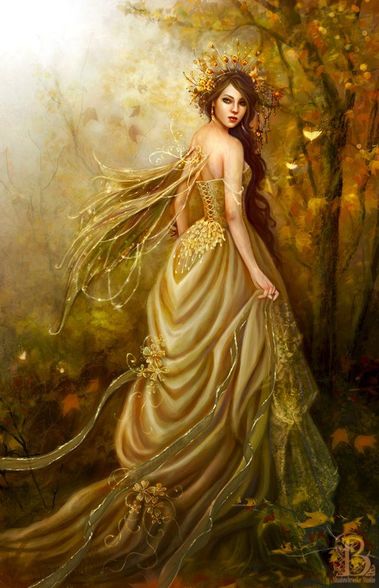
nymph [nimf] SynonymsExamplesWord Origin noun
- one of a numerous class of lesser deities of mythology, conceived of as beautiful maidens inhabiting the sea, rivers, woods, trees, mountains, meadows, etc., and frequently mentioned as attending a superior deity.
- a beautiful or graceful young woman.
- a maiden.
- the young of an insect that undergoes incomplete metamorphosis.
Origin of nymph 1350–1400; Middle English nimphe Latin nympha Greek nýmphē bride, nymphRelated formsnymph·al, nym·phe·an [nim-fee-uhn] /ˈnɪm fi ən/, adjectiveun·nymph·al, adjectiveun·nym·phe·an, adjectiveSynonyms for nymph 1. naiad, nereid, oread, dryad, hamadryad. See sylph. Related Words for nymphs fairy, spirit, goddess, sprite, naiad, nymphet, sylph, dryad, mermaid Examples from the Web for nymphs Contemporary Examples of nymphs
A disappointment: why nothing about nymphs and satyrs in mythology?
Charlotte Gainsbourg’s Raw Performance in ‘Nymphomaniac’ Is Not About the Sex
Jimmy So
March 21, 2014
You know, swimming in lakes, collecting miniature butterflies and putting them in boxes and writing letters to nymphs.
Indie Rock’s Bewitching New Siren
Rachel Syme
May 7, 2009
Historical Examples of nymphs
Do you not perceive that I am already overtaken by the Nymphs to whom you have mischievously exposed me?
Plato
Judging from the ornaments and images, this must be a spot sacred to Achelous and the Nymphs.
Plato
At the portal had stood two nymphs, now almost classic with decay.
Rupert Hughes
We are thy fleet, Idaean pines from the holy hill, now nymphs of the sea.
Virgil
And fauns and nymphs and satyrs echoed that shout most joyously.
Jean Lang
British Dictionary definitions for nymphs nymph noun
- myth a spirit of nature envisaged as a beautiful maiden
- mainly poetic a beautiful young woman
- the immature form of some insects, such as the dragonfly and mayfly, and certain arthropods. Nymphs resemble the adult, apart from having underdeveloped reproductive organs and (in the case of insects) wings, and develop into the adult without a pupal stage
Derived Formsnymphal or nymphean (ˈnɪmfɪən), adjectivenymphlike, adjectiveWord Origin for nymph C14: via Old French from Latin, from Greek numphē nymph; related to Latin nūbere to marry Word Origin and History for nymphs nymph n.
late 14c., “class of semi-divine female beings,” from Old French nimphe (13c.), from Latin nympha “nymph, demi-goddess; bride, mistress, young woman,” from Greek nymphe “bride, young wife,” later “beautiful young woman,” then “semi-divine being in the form of a beautiful maiden;” related to Latin nubere “to marry, wed” (see nuptial). Sub-groups include dryads, hamadryads, naiads, nereids, and oreads. Sense in English of “young woman, girl” is attested from 1580s. Meaning “insect stage between larva and adult” is recorded from 1570s. Related: Nymphal; nymphean.
nymphs in Science nymph [nĭmf]
- The immature form of those insects that do not pass through a pupal stage. Nymphs usually resemble the adults, but are smaller, lack fully developed wings, and are sexually immature. Compare imago larva pupa.
nymphs in Culture nymphs
Female spirits of classical mythology who lived in forests, bodies of water, and other places outdoors.
Note By extension, a “nymph” is a beautiful or seductive woman.
 Liberal Dictionary English Dictionary
Liberal Dictionary English Dictionary